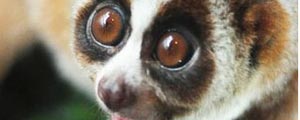
A new species of small nocturnal primate has been discovered by scientists in Borneo.
Report by BBC
The primate is a type of slow loris, a small cute-looking animal that is more closely related to bush babies and lemurs than to monkeys or apes.
Uniquely among primates, they have a toxic bite, belying their appearance.
Two previously known subspecies of slow loris have also been accorded full species status.
Details of the discoveries are published in the American Journal of Primatology.
The new species of slow loris, named Nycticebus kayan, has gone unrecognised until now, in part due to its nocturnal lifestyle.
Animals that are active by night often rely less on visual clues, and can therefore appear more similar to one another. So the scientists had to look hard to discover the differences between the new species.
- Chamisa under fire over US$120K donation
- Mavhunga puts DeMbare into Chibuku quarterfinals
- Pension funds bet on Cabora Bassa oilfields
- Councils defy govt fire tender directive
Keep Reading
An international team of researchers, led by Anna Nekaris of Oxford Brookes University in the UK, and Rachel Munds from the University of Missouri in Columbia, US, surveyed slow lorises living in the forests of Borneo and the Philippines.
They focused on studying the primates’ facial markings, which take the appearance of a mask, with the eyes being covered by distinct dark patches and the heads by varying patterns.
Part of Nekaris’s research was filmed by the BBC programme Natural World, which followed members of the team as they conducted surveys.
This research has revealed there are actually four species of slow loris in the Philippines and Borneo, each with their own, subtly different but distinct head markings.











